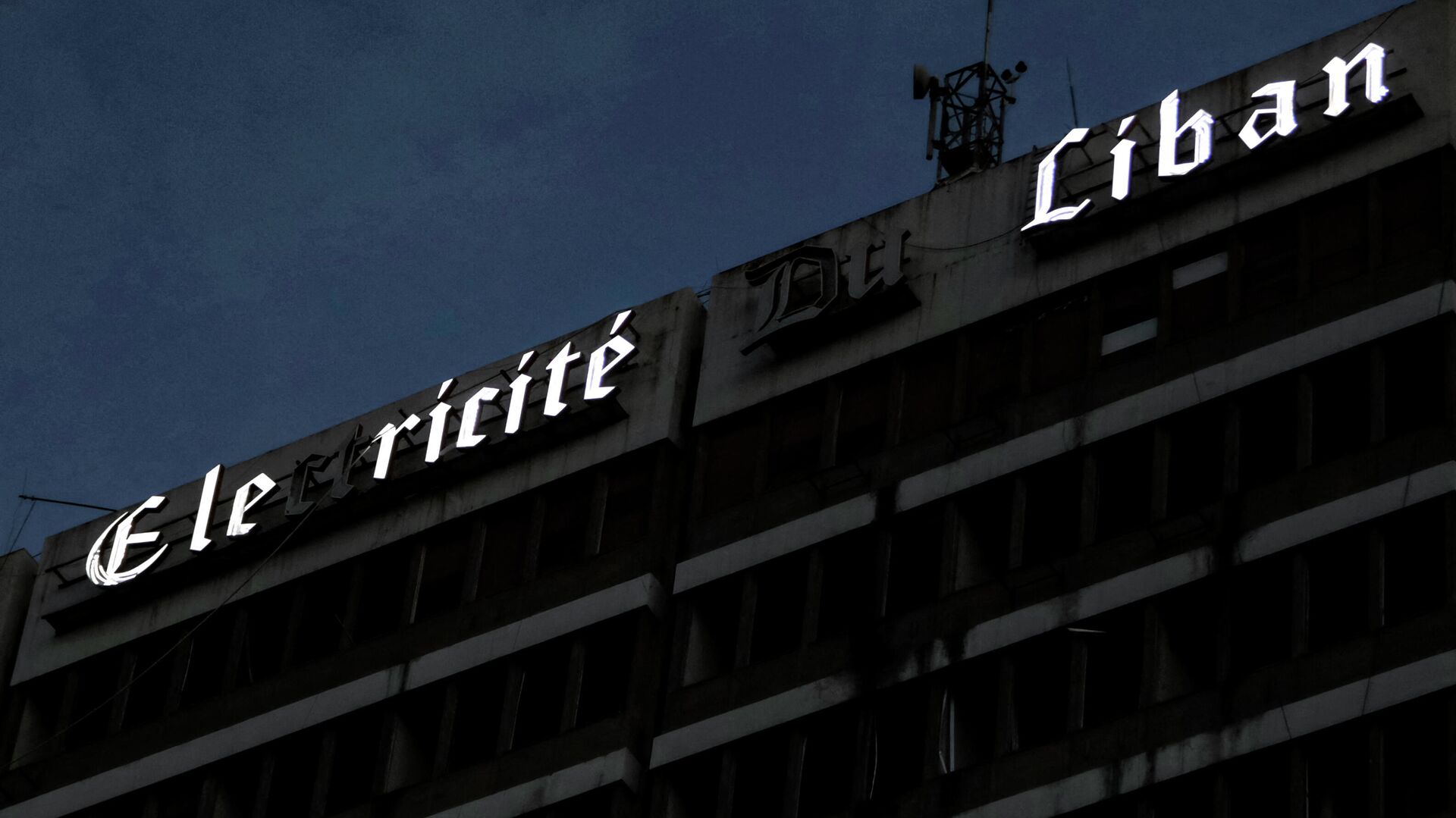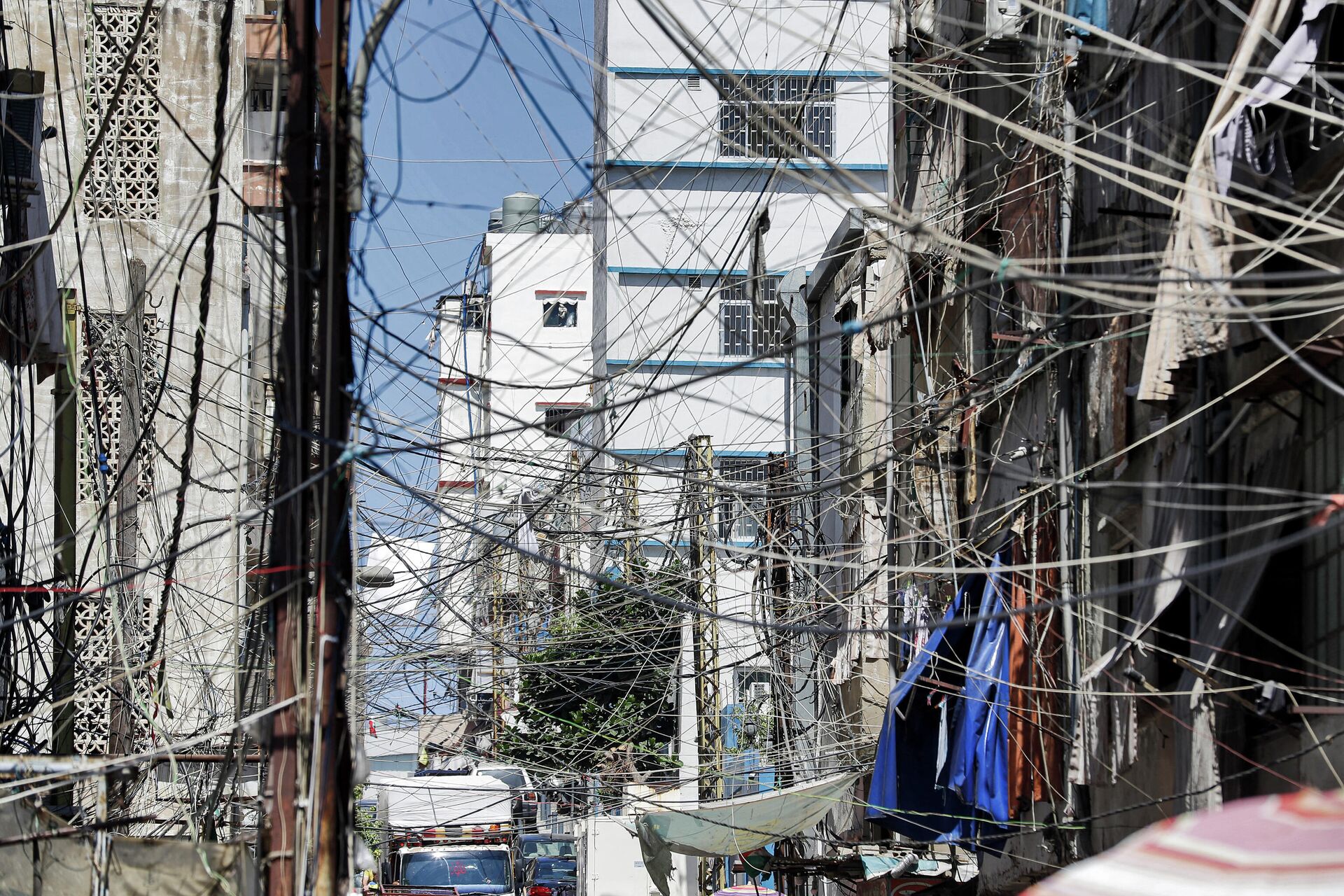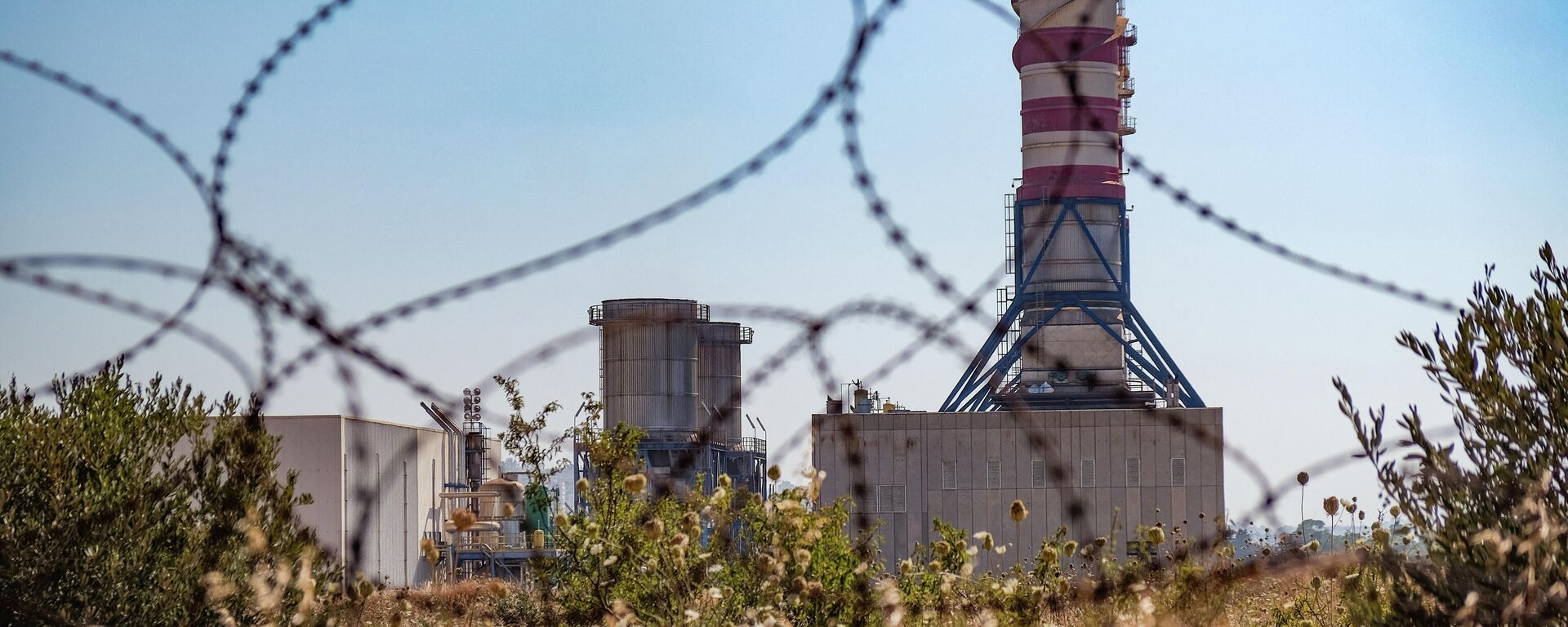How Lebanon Has Plunged Into a Fuel Crisis

© AFP 2023 / ANWAR AMRO
Subscribe
Over the weekend, Lebanon suffered yet another massive electricity outage, with the country's two major power plants - al Zahrani and the Deir Ammar stations - shutting down after running out of fuel.
The World Bank in July estimated the economic crisis in Lebanon to be one of history's worst depressions, with the country's GDP plummeting by at least 9.5 percent. According to the bank, the reason behind the financial meltdown in the Middle Eastern nation is "deliberately inadequate policy responses".
One of the scarcest resources in Lebanon is fuel. The owners of automobiles are struggling to get gasoline for their cars, and power generators desperately lack diesel for uninterrupted work, which is why blackouts and outages have become a grim reality in the country, with residents already accustomed to getting only several hours of electricity per day, if any.

This file photo taken on June 23, 2021, shows a view of a mesh of raised electricity lines along a street in a suburb of Lebanon's capital Beirut. - Lebanon was plunged into a total blackout today after two main power stations went offline because they ran out of fuel, the state electricity corporation said.
© AFP 2023 / JOSEPH EID
Historical reasons for the fuel shortage and economic crisis can be traced back to the end of the 15-year civil war in 1990 - after which successive governments have been piling up debt and facing accusations of constant corruption and lack of action on various economic and social issues.
In late 2019, mass protests against a WhatsApp tax, corruption, and mishandling of problems prompted the then-government to resign. Since then, the value of the nation's currency has been in freefall, while inflation, on the contrary, has skyrocketed. It reached 157.9% in March of this year in comparison to just 10% in January of last year, as estimated by the World Bank.
Things have only worsened. In August 2020, an enormous explosion devastated the port of Beirut, also severely damaging the city's infrastructure and claiming hundreds of lives and leaving thousands injured. Among other things, the blast damaged the national control centre of Electricité du Liban (EDL), the nation's electricity company.
The already depressed economy is still struggling with the aftermath of the catastrophe, which only added to Lebanon's attempts to pay its debts and, particularly, pay overseas energy suppliers.
The resulting fuel shortage has not only impacted power stations and transport systems, but also worsened access to basic supplies and put the country's health infrastructure at risk. According to UN Humanitarian Coordinator for Lebanon Najat Rochdi, fuel shortages are threatening vital healthcare and water services.
"I am deeply concerned about the impact of the fuel crisis on access to healthcare and water supply for millions of people in Lebanon. A bad situation only stands to get worse unless an instant solution is found", Rochdi stated in August.
The lack of fuel has forced the largest hospitals in Lebanon to reduce their activities, while also causing trouble for public water supply and wastewater treatment systems. Millions of people were plunged into poverty, with staple foods and medicine almost becoming a luxury. According to a July report by the Lebanon Crisis Observatory at the American University of Beirut (AUB), the cost of a family's basic food basket was five times the national minimum wage, which stands around 675,000 Lebanese pounds (some $440) a month.
This prompted black markets for fuel and electricity to flourish in the country, with the cartels running them said to be working in conjuction with the nation's elite.
"It's cartels and shady politicians in co-hoots [sic] with one another that are behind this messy situation", Karim Emile Bitar, director of the Institute of Political Science at Saint Joseph's University in Beirut, told Al Jazeera.
The fuel shortage has reportedly been turned into a business opportunity for some people, with an anonymous petrol station inspector at one of the country's largest petrol companies revealing to Al Jazeera that Lebanon in fact has "twice as much fuel as it needs, but it's being hoarded".
With power outages becoming the new norm, many observers have bitterly dubbed Lebanon a "failed state", unwittingly comparing the current situation with that during the nation's civil war.
"During the civil war, even with how horrible it was, there weren't any power cuts", Hassan Khalife, an owner of a barbecue joint in Beirut, told Reuters in August.
To address the most recent massive power outage in Lebanon on Saturday after two major power stations shut down due to fuel shortages, the authorities had to invoke emergency supplies of fuel. However, Minister of Energy and Water, Dr Walid Fayyad said on Sunday that the electrical network has returned to operating normally.



